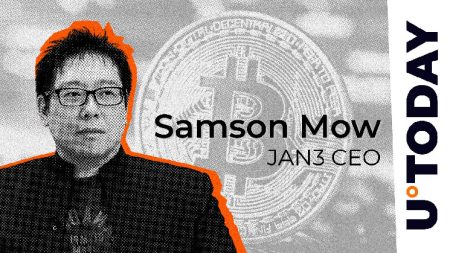The Alleged $24 Million Cryptocurrency Ponzi Scheme: A Closer Look
Brent Kovar and the Rise of Profit Connect
In the glitzy city of Las Vegas, where fortunes are often made and lost, a 58-year-old businessman named Brent C. Kovar has found himself at the center of a massive financial scandal. Kovar, the mastermind behind a company called Profit Connect, has been indicted for orchestrating an elaborate cryptocurrency Ponzi scheme that allegedly defrauded hundreds of investors out of $24 million. What began as a promise of lucrative returns through cutting-edge technology has unraveled into a web of deceit, false promises, and financial ruin for many.
From 2017 to 2021, Kovar operated Profit Connect, which he claimed was an artificial intelligence-powered cryptocurrency mining firm. To attract investors, he advertised guaranteed fixed returns of 15% to 30% annual percentage rate (APR), numbers that sounded too good to pass up in the volatile world of cryptocurrency. Additionally, Kovar allegedly implied that investments were backed by the Federal Deposit Insurance Corporation (FDIC), a assurances that come with a seal of trust and security. Little did investors know, however, that their money was being misused to fund Kovar’s lavish lifestyle, cover business expenses, and pay off earlier investors under false pretenses.
How Investors Were Lured Into the Scheme
The success of any Ponzi scheme relies on its ability to attract as many investors as possible, and Kovar’s operation was no exception. He utilized a combination of modern tools and old-fashioned charm to sell his fraudulent investment opportunity. Profit Connect’s official website, complete with sleek designs and professional language, was the first point of contact for many potential investors. The site likely featured testimonials, graphs showing impressive returns, and detailed explanations of the “revolutionary” AI technology behind the company’s operations.
But Kovar didn’t stop there. He also turned to YouTube, uploading videos that showcased his supposed success and expertise in the cryptocurrency space. These videos likely featured him explaining the benefits of AI-powered mining, interspersed with testimonials from “satisfied” investors. For those who wanted a more in-depth look, Kovar offered PowerPoint presentations that broke down the investment strategy and promised hefty returns. By the time he was done, he had lured in at least 400 investors, many of whom handed over their hard-earned money in hopes of securing a prosperous financial future.
The Misuse of Investor Funds
Behind the scenes, however, Kovar’s operation was far from legitimate. Instead of investing the money in AI-powered mining operations, Kovar allegedly used the funds for his own personal gain. Court documents reveal that he diverted millions of dollars to cover Profit Connect’s operational expenses, purchase luxury assets, and even repay earlier investors under the guise of legitimate returns. This classic tactic, known as “robbing Peter to pay Paul,” is a hallmark of Ponzi schemes. By ensuring that early investors received their promised returns, Kovar was able to build trust and encourage those investors to reinvest their earnings or bring in friends and family.
As the scheme progressed, Kovar likely found it increasingly difficult to keep up with the demand for payouts. The more investors he brought in, the more money he needed to sustain the illusion of profitability. It was only a matter of time before the entire operation came crashing down.
Charges and Potential Consequences
The unraveling of Kovar’s scheme has led to severe legal consequences. He has been indicted on a total of 18 charges, including 12 counts of wire fraud, three counts of mail fraud, and three counts of money laundering. If convicted on all charges, Kovar faces a staggering 330 years in prison and $4.5 million in fines. His trial is currently set for April 8, 2025, and the outcome could serve as a stark reminder of the risks associated with fraudulent investment schemes.
Assistant U.S. Attorney Daniel Schiess is leading the prosecution, and the case is being investigated by a joint task force that includes the FBI, the FDIC Office of Inspector General (FDIC OIG), and the Internal Revenue Service Criminal Investigation Division (IRS-CI). This multiagency approach highlights the seriousness of the allegations and the resources being dedicated to ensuring justice is served.
The Broader Implications of the Case
The case of Brent Kovar and Profit Connect serves as a stark reminder of the dangers of investment scams, particularly in the cryptocurrency space. At a time when digital currencies are gaining mainstream acceptance, fraudsters like Kovar are capitalizing on the public’s excitement and lack of understanding. The false promise of guaranteed returns and the misuse of investor funds are textbook examples of how Ponzi schemes operate.
Moreover, the case underscores the importance of due diligence on the part of investors. Before handing over their money, individuals must thoroughly research any investment opportunity, verify the legitimacy of the company, and be wary of promises that seem too good to be true. The old adage “if it sounds too good to be true, it probably is” rings particularly true in this situation.
Final Thoughts: A Cautionary Tale
Brent Kovar’s alleged $24 million cryptocurrency Ponzi scheme is a cautionary tale for investors everywhere. It highlights the lengths to which fraudsters will go to separate people from their money and the devastating consequences that follow. As the trial approaches, one can only hope that justice will be served and that this case will serve as a deterrent to others who might be tempted to follow in Kovar’s footsteps.
In the meantime, investors would do well to remember that there are no guarantees in the world of finance, and any investment carries inherent risks. By staying informed, being cautious, and refusing to fall for get-rich-quick schemes, individuals can protect themselves from falling victim to the next Brent Kovar.















